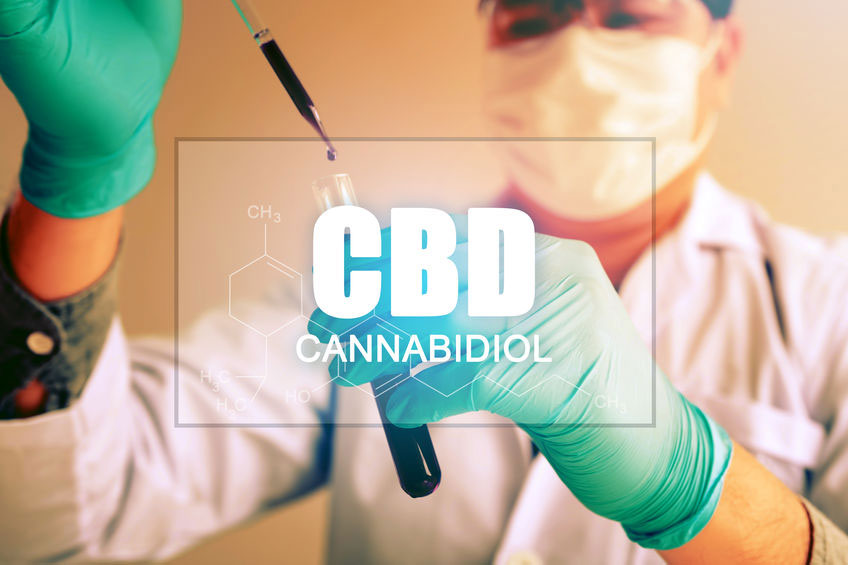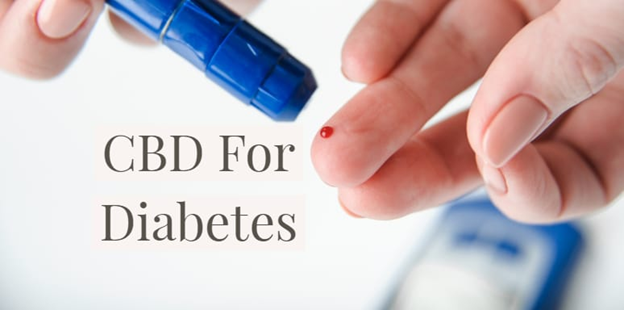
CBD STUDIES AND THE SCIENCE OF CBD OIL?
CBD studies are increasingly coming to light. The cannabidiol-containing preparations market has been booming lately because more and more people swear by the healing powers of this active ingredient from the cannabis plant. This popularity is not by chance because it would have been exposed long ago if it were just a placebo.
So, it has to be an effective and natural medicine because, unlike the active ingredient THC, cannabidiol is not psychoactive and therefore does not induce intoxication. But how does the effect of CBD come about, and what happens in the body? To answer these and other questions, let’s take a closer look at the available studies on cannabidiol.
What is unique about cannabidiol?
Strictly speaking, it is a cannabinoid – a substance that is contained in the hemp plant. There are over a hundred of them, but the best known are by far THC and CBD. However, since cannabinoids were only discovered in the 1970s, there has been relatively little research to date.
The illegality and bad reputation of cannabis did not help either, but after the healing properties of cannabinoids were discovered, more and more medical professionals became interested in them. In particular, CBD has no psychoactive effect but is also suitable for various diseases, making the active ingredient something special.
The First Study on Cannabidiol
After researchers discovered the cannabinoids and examined the properties of cannabidiol and other compounds, it quickly became apparent that most of them were linked to the effects of marijuana, hash, and other cannabis products. But they got deeper into the matter to find out how this effect even came about; they made an even more significant discovery – the endocannabinoid system (ECS).
At the end of the 1980s, an ambitious researcher set himself to find out more about the ECS and came to astonishing results. Professor Allyn Howlett from Saint Louis University in Missouri used his studies to show that the human body has special receptors for the absorption of cannabinoids. Two of them are incredibly important and have, therefore, been given the names CB1 and CB2. They are part of the ECS and thus contribute to the regulation of processes in the body. They have a particular influence on the following body functions:
- The perception of pain
- The sensation of joy and sadness
- The feeling of fear
- The work of the immune system
- The appearance of hunger and fatigue
However, the ECS reacts to the ingestion of cannabinoids from products like oil, liquid, or weed. Several studies show that the human body even makes its cannabinoids. Thus there is a clear link between the healing properties of cannabidiol and health.
Brand New Study: How CBD Works on Anxiety Disorder Patients
An independent CBD study by student Jona Decker and his fellow students in economics, biochemistry, social science, and psychology examined how the use of cannabidiol (CBD) could affect patients suffering from an anxiety disorder. The aim was to prove whether the patient in question can be helped by taking cannabidiol regularly. The treatment of social phobia is a focus.
With this type of pathological fear, the person fears that other people will perceive them as “strange.” Depending on the severity of the disease, this results in a more or less considerable restriction in everyday life. In the US, about seven to 12 percent of people are affected by a social anxiety disorder. Currently, this form of anxiety disorder is treated either with the help of medication and psychotherapy.
Various studies have shown that CBD can presumably positively affect the development of a social phobia. Countless people have given cannabidiol (CBD) products a chance here in the past. The turnover in the industry is increasing. Interest grows. Isn’t it about a placebo effect? To cure or reduce an anxiety disorder at all, how or can cannabidiol (CBD) help?
The scope of the results of the CBD investigation
The study showed that it is realistic that constant consumption of cannabidiol (CBD), even a relatively small amount, can help combat an anxiety disorder in the form of a social phobia. Nevertheless, it should be kept in mind at all times that the test participants consumed the cannabidiol (CBD) oil themselves and in their usual environment. Consumption could, therefore, not be precisely controlled.
It can be assumed that an overall placebo effect can be ruled out since treatment with rapeseed oil did not show any improvement in the anxiety disorder.
However, a larger group of test candidates would be needed to make the study even more meaningful ultimately. Therefore, based on the research, it can still and not scientifically be proven that cannabidiol (CBD) oil is an optimally effective agent against anxiety disorders. Further, more comprehensive studies would have to be carried out here.
A look Behind the Scenes
When it comes to CBD, many people think of cannabis. BUT: Cannabidiol is very different from cannabis, which contains more than eighty different chemicals. Therefore, CBD is NOT psychoactive. The study candidates benefited from its anti-anxiety effect, which was also examined in studies by other scientists.
Fundamental information about the CBD study
The following critical data characterized a study:
- Study duration 30 days
- Anxiety scores BEFORE and AFTER the study were compared.
- Eighteen test candidates received – without knowing it – a placebo (in the form of rapeseed oil). Nineteen test candidates consumed 15% cannabidiol oil.
- Forty test subjects (or 37 because three subjects dropped out of the study) were found on social media, averaged 32.6 years of age, and have been shown to have an anxiety disorder related to social phobia.
Their family doctor naturally examined the study participants in question for possible health impairments before the study.
The independent CBD investigation has one goal
In the independent investigation, it should now be determined whether cannabidiol (CBD) can help with social anxiety disorders. Can it also prevent symptoms of blushing, tremors, and the likes of it?
The result of the CBD study
After a study duration of thirty days, it was found that the anxiety levels of the participants who had consumed CBD had improved in 17 out of nineteen cases and by an average of 32 percent.
In more detail, the average anxiety scores before the start of the study were 4.1 (on a scale from 1 to 5) and 3.2 afterward. It reduced the perceived anxiety symptoms from taking the CBD. In contrast, taking the placebo showed no significant effect.
Accordingly, the study suggests that taking CBD in an appropriate dosage could be quite sensible and advisable if you have a social phobia.
It also applies to good tolerance during the study. For a short time, only one test person suffered from fatigue. Even the test participants tolerated the CBD oil perfectly.
The dose of cannabidiol during the study (fifty mg/day) was kept comparatively low, deviating from the 300 to 600 mg per day often given in the literature, because:
- The trial costs would have become too expensive
- A few past types of research have shown that lower dosages provide better results
Other interesting studies
As the groundbreaking results related to cannabinoids and the ECS continued, research on the topic continued. Initially, these were mainly carried out on animals and cell samples, but the results from these experiments have already been very useful in medicine. Based on this, it was possible to establish that cannabis oil has an almost exclusively positive effect on the body, which has hardly any side effects.
The studies on the treatment and prevention of cancer yielded particularly impressive results. In the beginning, the researchers found that cannabidiol not only has anti-inflammatory and analgesic effects but also has a calming and anxiolytic effect. Because of these properties, it was immensely popular to relieve symptoms in chemotherapy. However, it turned out that cannabidiol also has an antioxidant effect and can protect human cells from undesired mutations (cancer).
Because of these groundbreaking results, more and more studies have been initiated, not only with animals but also with human patients. Based on this, it could be determined that cannabidiol can be used for a wide variety of diseases. Some options are:
- The reduction of auto-immunized inflammatory processes in type 1 diabetes
- The suppression of epileptic seizures
- The increase in the quality of life of people with Parkinson’s disease
- The cure for nicotine addiction
- The elimination of anxiety
- The relief of psychotic symptoms
- The treatment of schizophrenia
- The fight against nervousness and a lack of empathy
- The suppression of excessive appetite
- The elimination of sleep problems
These are only parts of the results so far because there are already further studies that also promise positive results. Studies are currently being explored for diseases such as Crohn’s disease and multiple sclerosis. It also seems to be of great benefit to Alzheimer’s patients – but research is still in its infancy.
The problem with the pharmaceutical industry
With all the positive research results and the opinions of satisfied users, there is also a downside. The major drug manufacturers have absolutely no interest in the spread of medicinal cannabis. The pharmaceutical industry has always tried to demonize cannabis and keep it illegal.
The problem is primarily the money because natural active ingredients such as THC and CBD cannot be patented and difficult to market. For this reason, the pharmaceutical industry hardly invests in cannabidiol research. Another problem arises once it comes to approval. A certain number of different studies have to be carried out to bring a drug onto the market, which is expensive and time-consuming. The drug manufacturers prefer to bet on low-cost chemical preparations – no matter the fatal side effects they bring with them.
Our conclusion on the studies on CBD
The research results so far clearly show that cannabis oil can help a variety of diseases and ailments. Although the number of available studies is still relatively small to date, the favorable properties of cannabinoids can no longer be dismissed out of hand. The only problem with this is the stubborn attitude of the pharmaceutical industry. If they scaled back their enormous profit expectations a little and invested a little more in research, we would all have a bright future.






Leave a comment
This site is protected by hCaptcha and the hCaptcha Privacy Policy and Terms of Service apply.